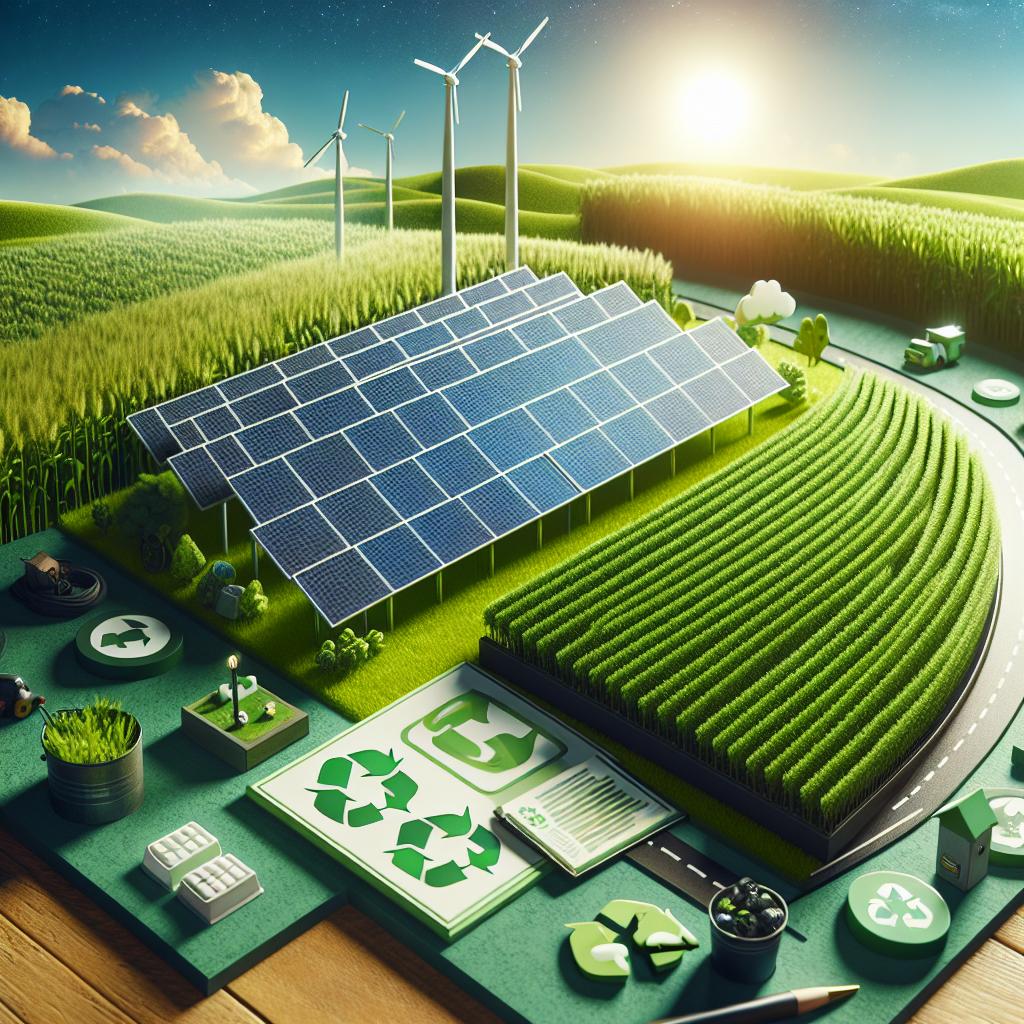Climate Smart Future

As we mark the 52nd anniversary of Earth Day on April 22, 2023, it's a fitting time to reflect on our collective progress towards a more sustainable future and recognize the actions we can take to reduce our carbon footprint and preserve the planet for future generations. In this article, we'll delve into the role of renewable energy, waste reduction, and climate-smart agriculture in our efforts to mitigate climate change and honor the Earth.
First and foremost, renewable energy has emerged as a key pillar in the global fight against climate change. The increasing affordability and availability of solar, wind, and hydropower have made it possible for countries to transition away from fossil fuels and reduce their greenhouse gas emissions. According to the International Renewable Energy Agency (IREA), renewable energy sources accounted for over 72% of the total power capacity additions in 2022.
As a testament to the growing importance of renewable energy, many governments and businesses have made significant commitments to expand their renewable energy infrastructure. For instance, the European Union has set a target of achieving a 40% share of renewable energy in its total final energy consumption by 2030, while the United States aims to generate 45% of its electricity from renewable sources by 2025.
While renewable energy is a critical component in the transition to a low-carbon economy, it's essential to remember that energy production is not the only source of greenhouse gas emissions. Waste reduction, another crucial aspect of sustainability, plays a vital role in minimizing our environmental impact. According to the Environmental Protection Agency (EPA), landfills are the third-largest source of methane emissions in the United States – a potent greenhouse gas with 25 times the heat-trapping capacity of carbon dioxide over a 100-year timeframe.
To address this challenge, Earth Day 2023 presents an opportunity for us to reaffirm our commitment to reducing waste and embracing the circular economy. By focusing on the three R's – reduce, reuse, and recycle – we can all contribute to a more sustainable future. For instance, implementing simple practices like using reusable shopping bags, choosing products with minimal packaging, and properly sorting and disposing of waste can go a long way in reducing greenhouse gas emissions and preserving the environment.
Furthermore, as we strive for a greener future, it's crucial to recognize the importance of climate-smart agriculture in the context of sustainability. Agriculture is responsible for approximately 14.5% of global greenhouse gas emissions – a significant portion of the world's total emissions. Climate-smart agriculture, on the other hand, is a set of practices that help farmers adapt to and mitigate the impact of climate change while reducing their carbon footprint.
Some examples of climate-smart agriculture practices include:
1. Agroforestry: This involves growing crops, trees, and livestock together on the same piece of land to create a more diversified and resilient farming system.
2. Conservation agriculture: This approach involves minimal disturbance of the soil during cultivation, which helps to reduce the carbon footprint of farming while improving soil health and productivity.
3. Precision agriculture: Utilizing technology to optimize crop yields and reduce inputs like water, fertilizers, and pesticides.
By embracing these practices and others, farmers can not only reduce their carbon footprint but also enhance their resilience to climate change and improve their livelihoods.
In conclusion, as we observe Earth Day 2023, it's essential to remember that the fight for a sustainable future is a collective endeavor that requires the efforts of individuals, businesses, and governments alike. By focusing on renewable energy, waste reduction, and climate-smart agriculture, we can all contribute to a greener, more sustainable world. Let's take inspiration from the progress we've made so far and continue to push for innovation, collaboration, and action as we work towards a better future for our planet.




